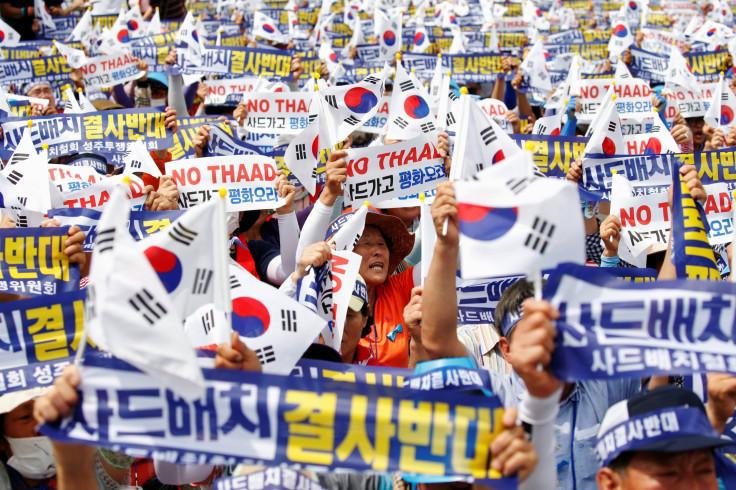South Korea Presidential Office Says China ‘Out-Of-Place’ On THAAD

South Korea's presidential office rebuked on Sunday China's criticism of its decision to deploy an advanced anti-missile defense, urging Beijing to instead play a stronger role against North Korea's provocations on the peninsula.
The statement by President Park Geun-hye's office marked an escalation of diplomatic tensions between South Korea and China, which has sharply criticized Seoul's move to host a Terminal High Altitude Area Defense (THAAD) unit with the U.S. military.
Park's senior press secretary, Kim Sung-woo, said in the statement recent commentary carried by China's state media was "out of place" in blaming South Korea for raising tension on the Korean peninsula with the move to deploy a THAAD unit.
"Rather than taking issue with our purely defensive action, China should raise issue in a stronger manner with North Korea which is breaking peace and stability on the Korean peninsula and Northeast by conducting four nuclear tests and, just this year, launching more than 10 ballistic missiles," it said.
South Korea and the United States began discussions to deploy a THAAD unit in the South after the North's fourth nuclear test in January and a long-range rocket launch in defiance of U.N. sanctions. South Korea has said the move is purely to counter growing missile threats from the North and was not intended to target China, but Beijing has protested it would destabilize regional security balance.
On Wednesday, China's People's Daily in an editorial said: "It is impossible for South Korea’s leader not to know America’s strategic plot. (She) is well aware of the real direction of the THAAD anti-missile system."
"(She) has no hesitation about undermining regional stability and flagrantly damaging the security interests of neighboring powers," it said.
North Korea has launched a series of missiles in recent months, the latest on Wednesday when one ballistic missile that flew about 1,000 km (600 miles) landed near Japanese-controlled waters.
© Copyright Thomson Reuters 2024. All rights reserved.





















